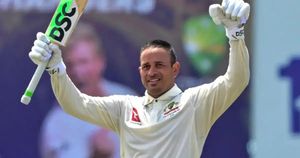International concerns are rising over the implementation of Israel's recent law forbidding any interaction between its officials and the United Nations Relief and Works Agency for Palestinian Refugees (UNRWA). The law became effective on January 30, 2025, and has drawn significant backlash from major European nations.
According to a joint statement from Britain, France, and Germany, published by the British government, the three nations expressed their "grave concern" about this restriction. They urged Israel to collaborate with international partners, including the UN, to maintain the continuity of humanitarian operations. The joint statement emphasized, "We urge the government of Israel to work with international partners, including the UN, to enable continuity of operations."
UNRWA's leadership echoed these concerns during a recent press conference, warning of the dire consequences for the fragile ceasefire between Israel and Hamas. Juliette Touma, Director of Communications for UNRWA, stated, "If UNRWA is not allowed to continue to bring and distribute supplies, then the fate of this very fragile ceasefire is going to be at risk and is going to be jeopardy." Despite the ban, UNRWA continues to deliver assistance, underscoring its pivotal role during the humanitarian crisis. Touma added, "Our teams continue to serve... We are committed as UNRWA to stay and deliver across the Occupied Palestinian Territory."
The organizational challenge of delivering humanitarian aid has intensified following the staggering number of displaced persons. More than 462,000 individuals are estimated to have moved from southern to northern Gaza since the conflict began. Aid partners, including the UN, are assisting these displaced individuals by providing medical care and necessary supplies like water and food.
UNRWA, noted for its extensive reach among Palestinian communities, provides basic health care, education, and humanitarian support to millions across the region. The agency stated any disruption would inflict severe consequences on the lives and futures of Palestinian refugees. "We have around 50,000 boys and girls across the West Bank... who go to UNRWA’s schools," stressed Touma. The balance of operations is now increasingly precarious as the Israeli Knesset's ban isolates the agency from governmental collaboration, hinging future operations on international support.
The controversy surrounding UNRWA's operations has its roots linked to accusations by Israeli officials. Some have claimed involvement of UNRWA employees with Hamas during the violent escalation following the October 7, 2023, attacks, with subsequent investigations leading to firings by the agency. Israeli Foreign Minister Gideon Saar underscored the shift in focus with the statement, "Humanitarian aid doesn't equal UNRWA... humanitarian assistance should come through other international agencies and NGOs." This reflects Israel's desire to redirect humanitarian aid away from UNRWA.
Meanwhile, humanitarian organizations continue their efforts to increase aid distribution. The World Food Programme (WFP) reported its plans to establish additional aid distribution points to meet the overwhelming needs of internally displaced persons, emphasizing the necessity of dual-use items for effective delivery. Dr. Rik Peeperkorn, WHO representative, provided insight, stating, "The ceasefire is allowing us to scale up aid," highlighting the urgency as health needs have proliferated due to the influx of displaced individuals.
The current health crisis remains alarming, with only 18 out of 36 hospitals functioning and many primary health care centers overwhelmed. Peeperkorn noted, "Currently, 12,000-14,000 people need medical evacuation," illustrating the urgent medical needs within Gaza. Medical aid remains precarious as the WHO and UN agencies plead for the restoration of traditional care pathways.
Compounding the humanitarian narrative, there are accounts from recently freed hostages who revealed being held captive by Hamas and allegedly within UNRWA facilities. Reports surfaced about Emily Damari, who recounted her inability to receive medical treatment during her time as a hostage. This led to UNRWA spokesperson Juliette Touma reiterate calls for independent investigations concerning allegations of misuse and disregard of UNRWA premises.
The broader international community must navigate this complex web of humanitarian needs amid politically charged disputes over agency operations. With the ceasefire still holding, the contributions of UNRWA remain invaluable to the people of Gaza, who rely on the agency for their very survival. The continuation of UNRWA's operations, notwithstanding the Israeli ban, is imperative not just to avert humanitarian catastrophe but to facilitate peace.



